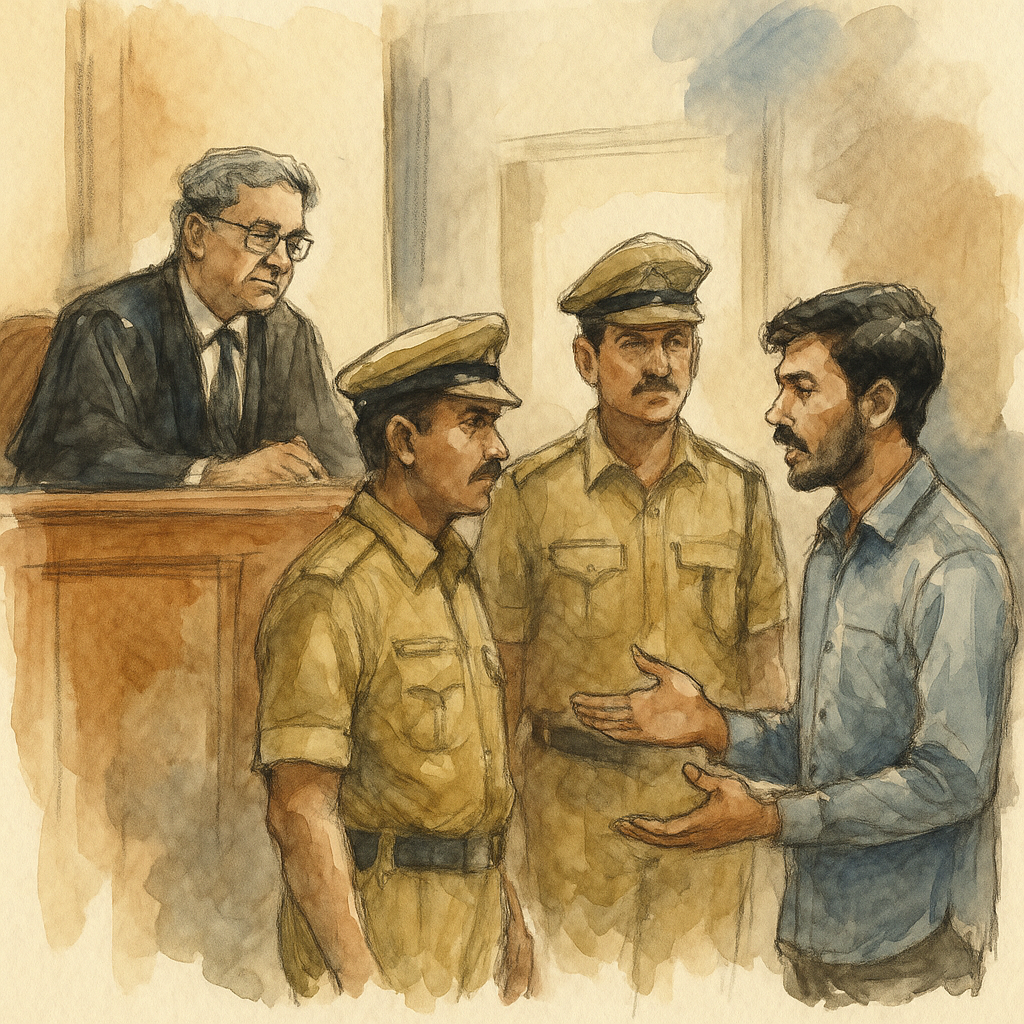Simplified Explanation of the Judgment
The Patna High Court delivered this judgment on 25 February 2020 in Civil Writ Jurisdiction Case No. 1061 of 2020, concerning a recruitment dispute in the Railway Protection Force (RPF) for the post of Constable (Band). The petitioners, unsuccessful candidates from Rajasthan and Uttar Pradesh, challenged the recruitment procedure, alleging deviations from the original advertisement and unfair selection practices.
Background
In 2016, the Railways issued Advertisement No. 1 of 2016 for recruitment of Constables (Band) in RPF. The selection process included a written examination, physical efficiency and measurement tests, followed by a Trade Test in which candidates had to play the musical instrument of their choice. The petitioners cleared the written and physical tests but failed in the Trade Test.
The petitioners argued that the authorities conducted the recruitment process contrary to the advertisement. Specifically, the advertisement had originally stated that document verification would precede the Trade Test. However, the Railways issued a corrigendum in December 2018 correcting this, stating that the Trade Test would be conducted before document verification, in line with Railway Board Instruction No. 34.
The petitioners participated in the revised process, including the Trade Test, without raising objections for nearly nine months. After failing, they approached the High Court challenging the corrigendum and the selection procedure.
Petitioners’ arguments
- The document verification should have been conducted first, as per the original advertisement.
- The number of seats was increased to 269, but only 148 candidates were selected, depriving many aspirants including the petitioners.
- Some candidates were allegedly allowed to appear with instruments like harmonium and mridang, which were not mentioned in the recruitment process.
Railways’ defense
- The corrigendum was issued in December 2018, months before the Trade Test in September 2019, clearly specifying the order of tests.
- The corrigendum corrected a clerical mistake and was in conformity with Railway Board’s recruitment instructions.
- Petitioners willingly participated in the process under the corrigendum and cannot challenge it later after being unsuccessful.
- Only 148 candidates could be selected as others were disqualified based on merit and performance.
- The allegation of unauthorized instruments being permitted was denied in the counter affidavit, and no rejoinder was filed by the petitioners.
High Court’s decision
The Court dismissed the writ petition as devoid of merit, upholding the selection procedure and results.
The reasoning included:
- Since petitioners participated in the selection under the corrigendum without protest, they were estopped from challenging it after failing.
- The corrigendum was issued lawfully to correct a procedural mistake and brought to the candidates’ notice well in advance.
- Selection of only 148 candidates was justified as only that many qualified. Authorities were not bound to fill all advertised posts if suitable candidates were lacking.
- The allegation regarding harmonium and mridang was rejected as the Railways’ denial went unrebutted.
Thus, the petition was dismissed.
Significance or Implication of the Judgment (For general public or government)
- For candidates: This judgment reinforces that once aspirants participate in a recruitment process under corrected rules, they cannot later challenge those rules if unsuccessful. Candidates should raise objections at the earliest possible stage.
- For government departments: The case highlights the importance of issuing timely corrigenda to correct errors in advertisements, ensuring they are consistent with central instructions.
- For courts and legal practitioners: The ruling affirms the principle of estoppel—candidates who take part in a process without objection cannot later contest its validity merely because the outcome was unfavorable.
Legal Issue(s) Decided and the Court’s Decision with reasoning
- Issue 1: Whether the recruitment process was vitiated by reversing the order of document verification and Trade Test.
- Decision: No. The corrigendum lawfully corrected the process, and petitioners accepted it by participating.
- Issue 2: Whether the Railways erred by selecting only 148 candidates when more posts were advertised.
- Decision: No. Only 148 candidates qualified. The authorities were not required to fill all advertised vacancies if candidates did not meet standards.
- Issue 3: Whether permitting harmonium and mridang players violated the recruitment norms.
- Decision: No. The allegation was denied by Railways and remained uncontroverted as no rejoinder was filed.
Case Title
Anuj Kumar Meena & Ors. vs. East Central Railway & Ors.
Case Number
CWJC No. 1061 of 2020
Citation(s)
2021(1)PLJR 567
Coram and Names of Judges
Hon’ble Mr. Justice Madhuresh Prasad
Names of Advocates and who they appeared for
- For the petitioners: M/s Ashok Kumar Choudhary, Manoranjan Kumar, Akshansh Ankit, Prakash Kumar
- For the respondents (Railways): Mr. Kumar Priya Ranjan, Mr. Pallav
Link to Judgment
https://patnahighcourt.gov.in/vieworder/MTUjMTA2MSMyMDIwIzMjTg==-95I–ak1–QBD–am1–gUQ=
If you found this explanation helpful and wish to stay informed about how legal developments may affect your rights in Bihar, you may consider following Samvida Law Associates for more updates.









